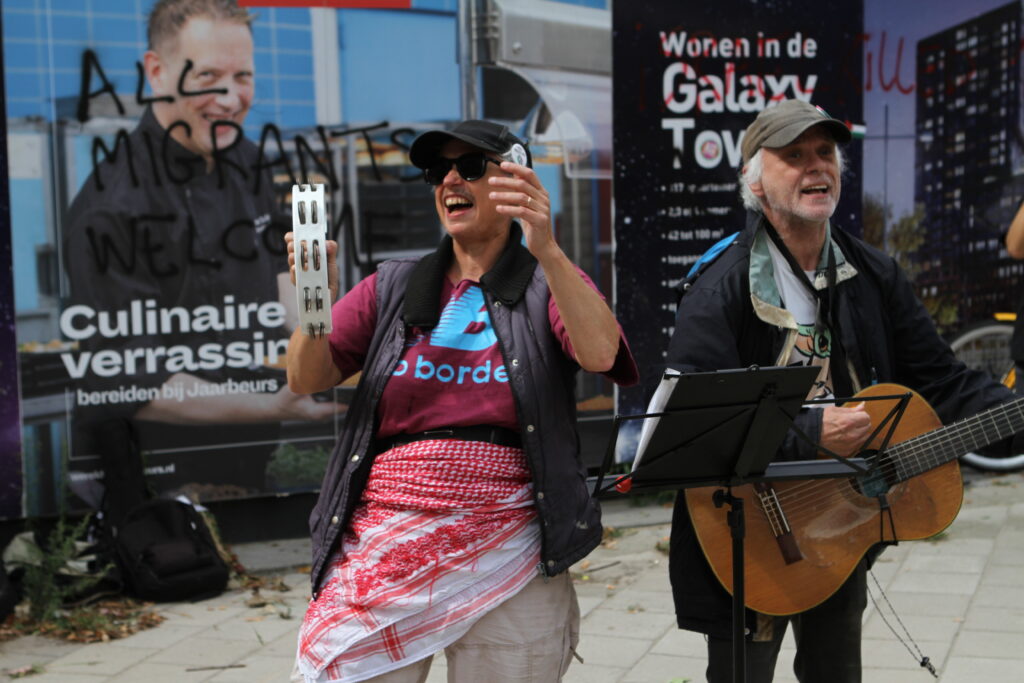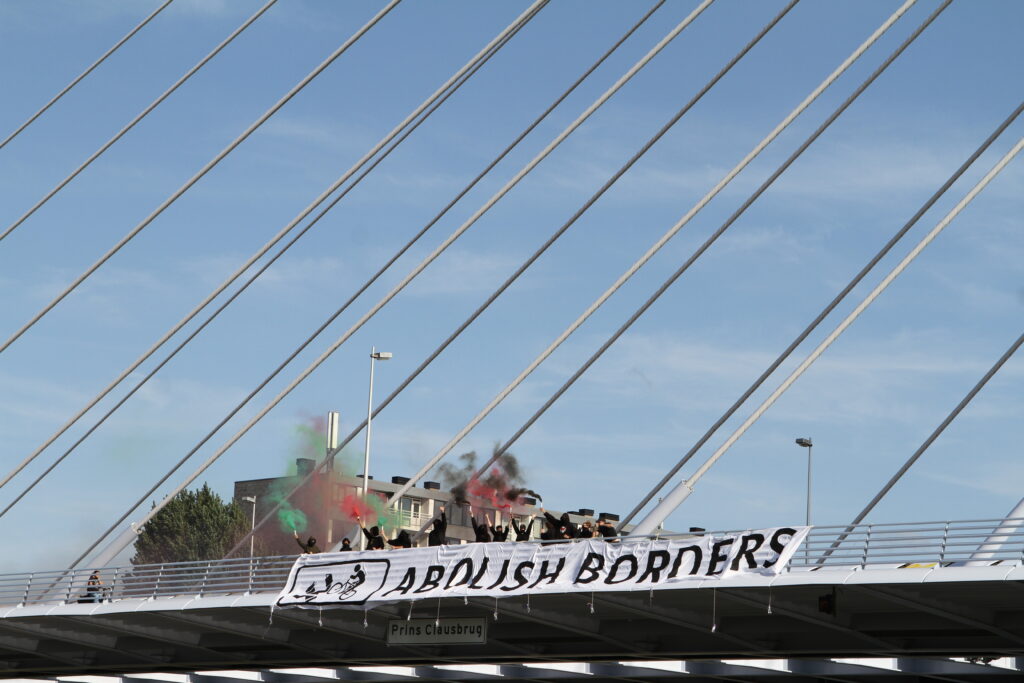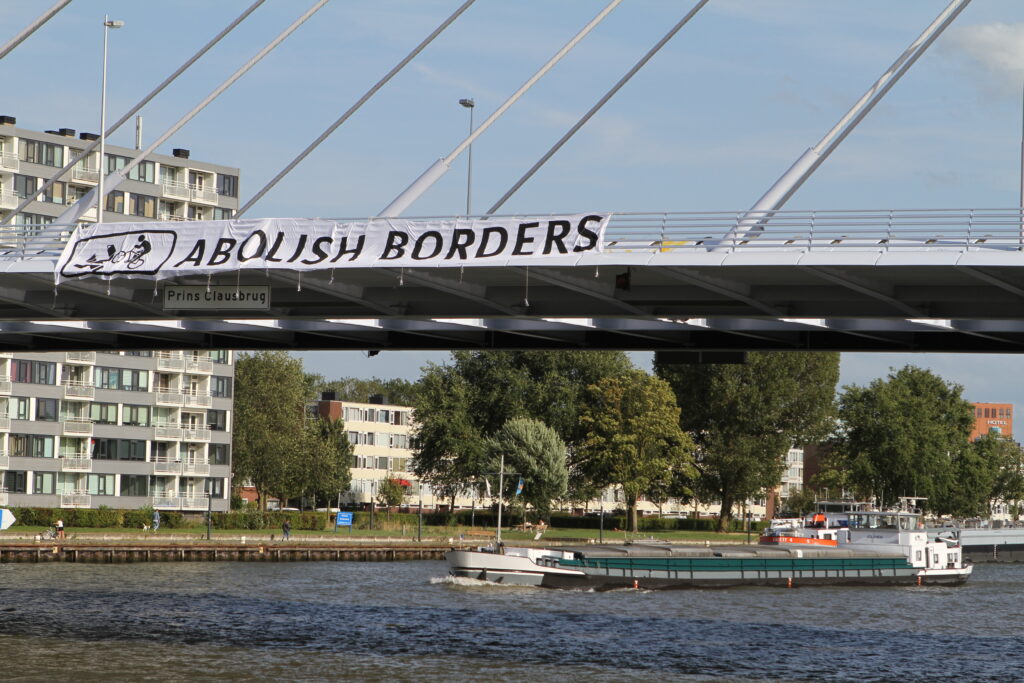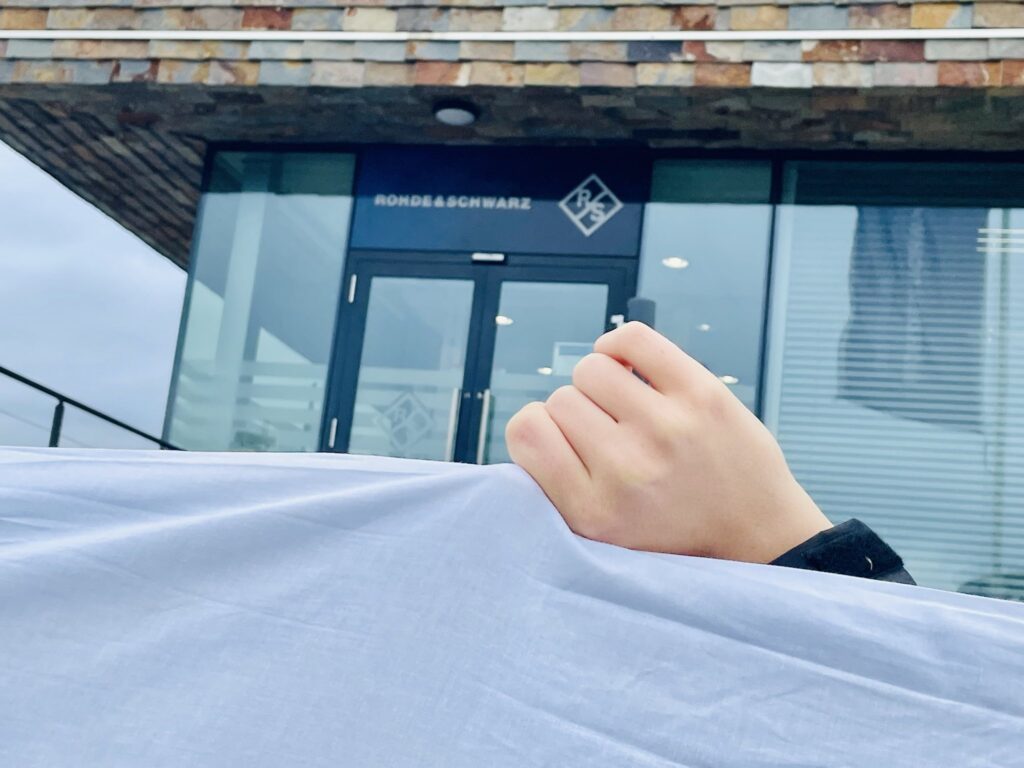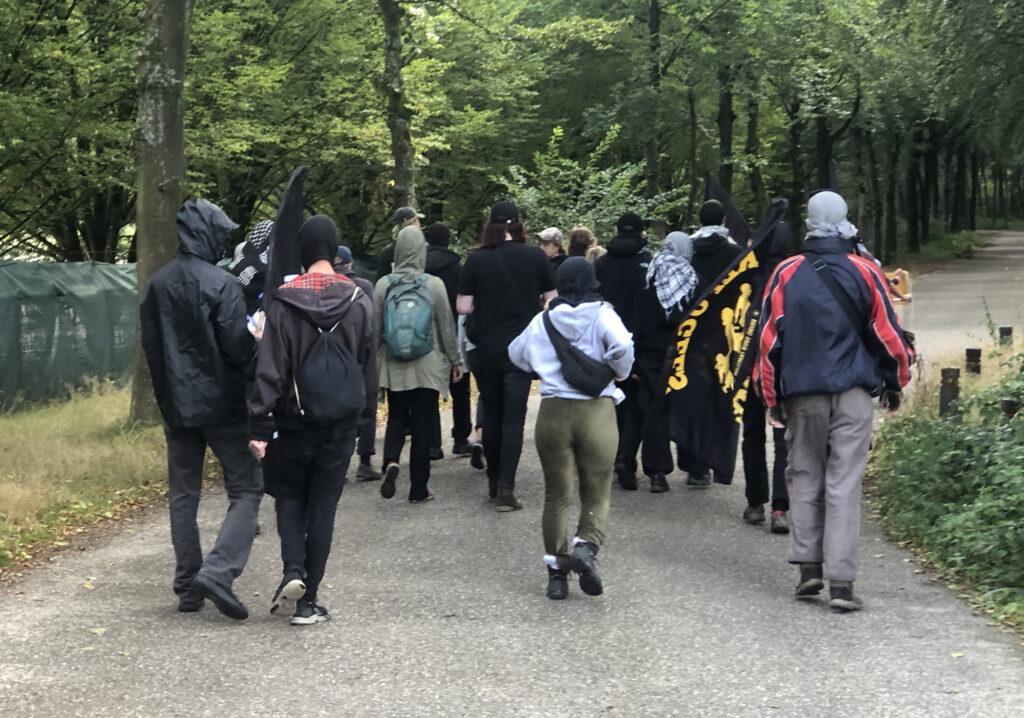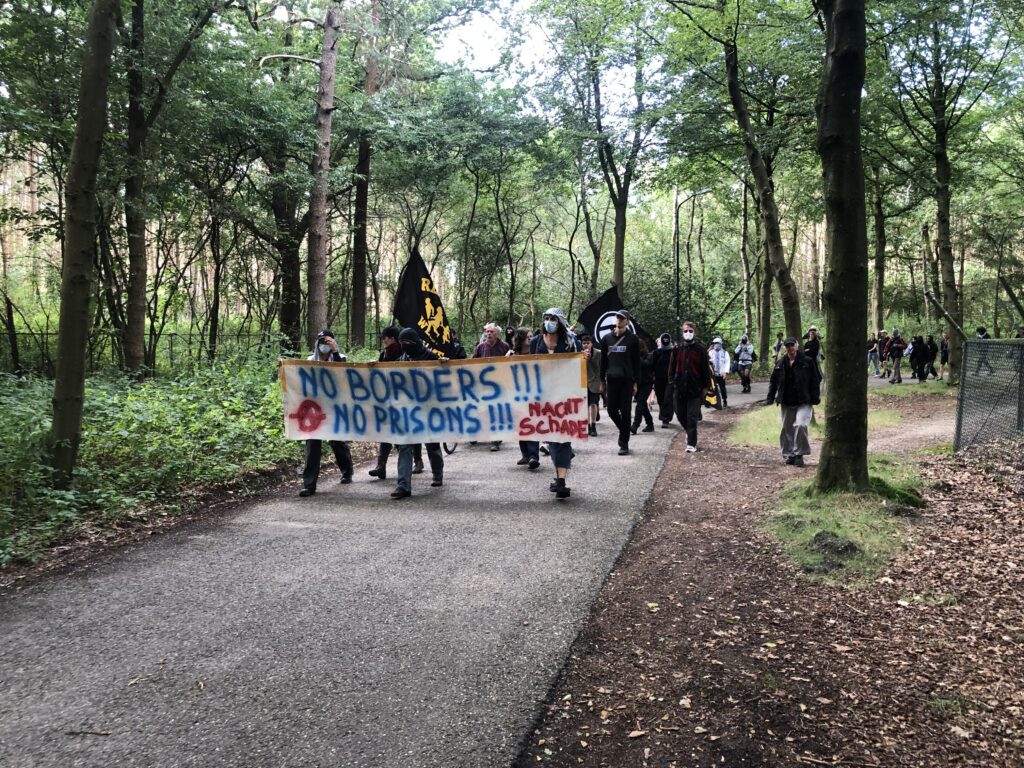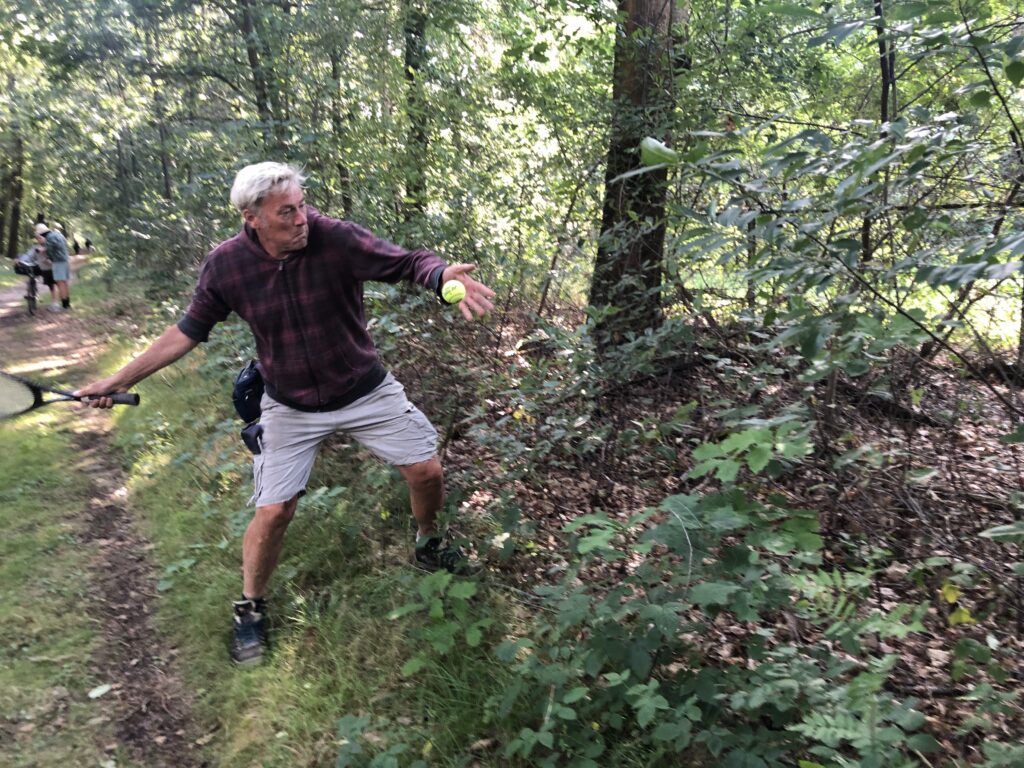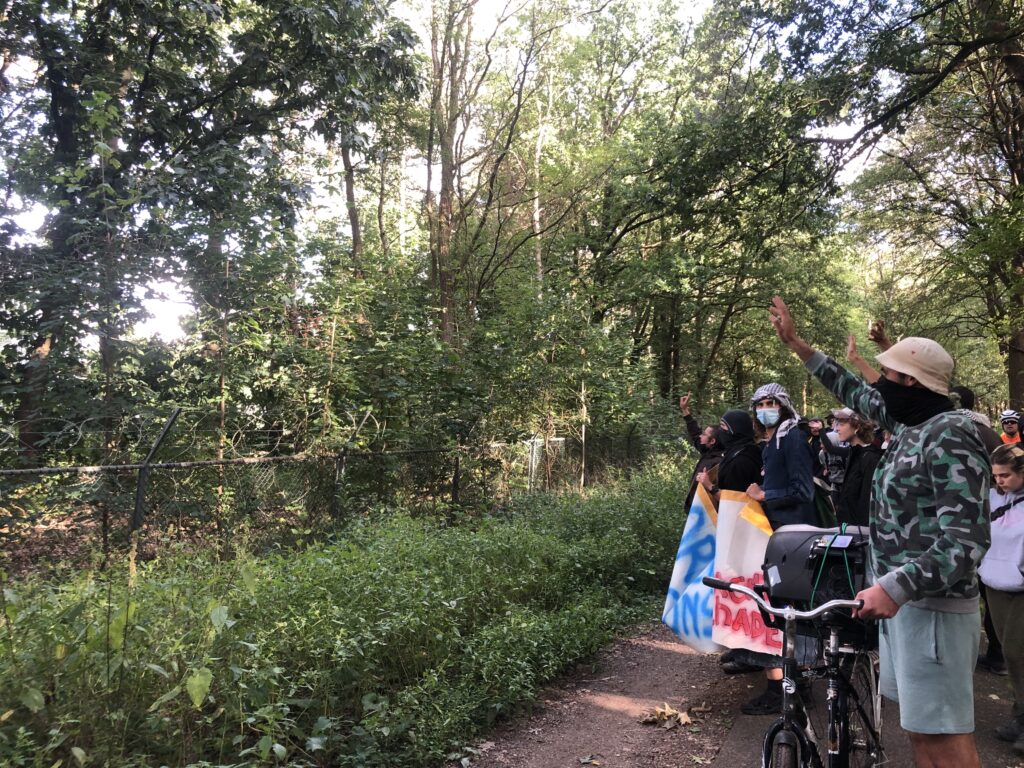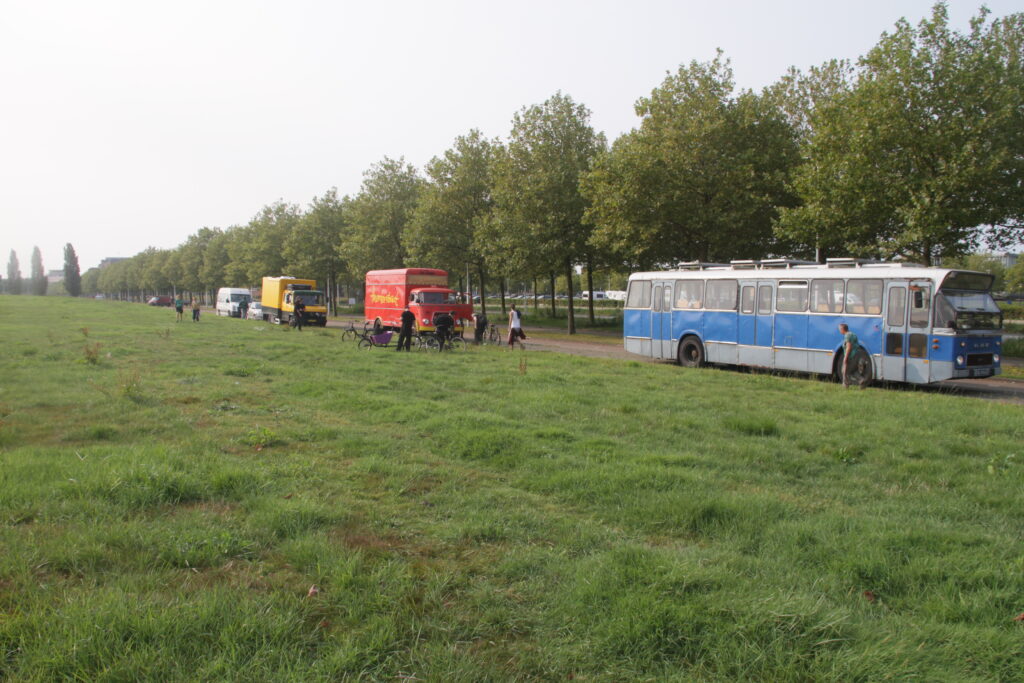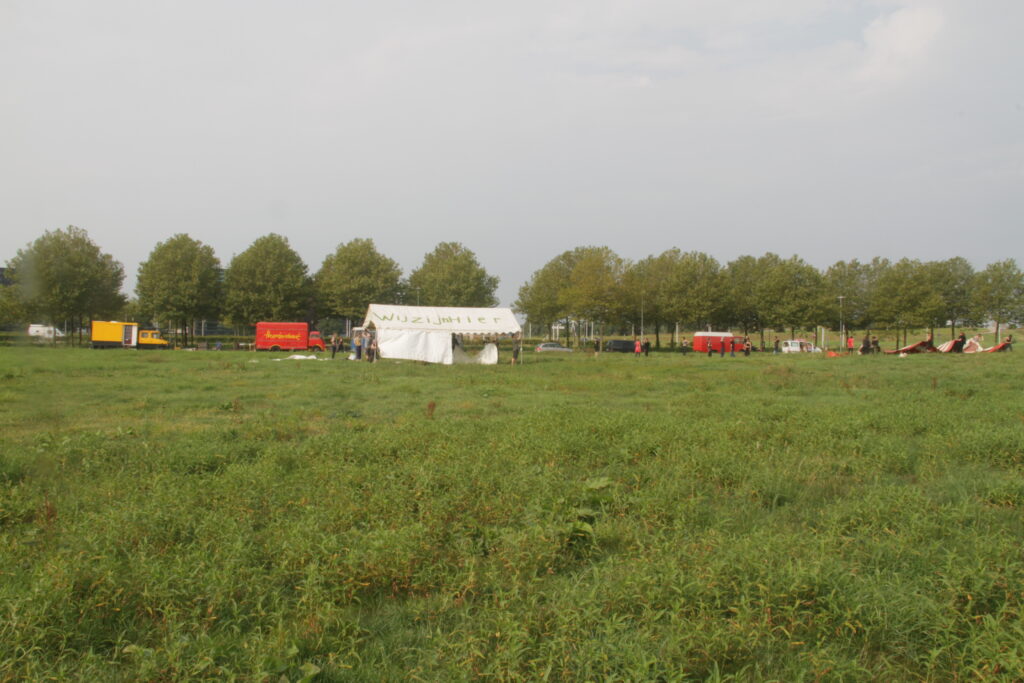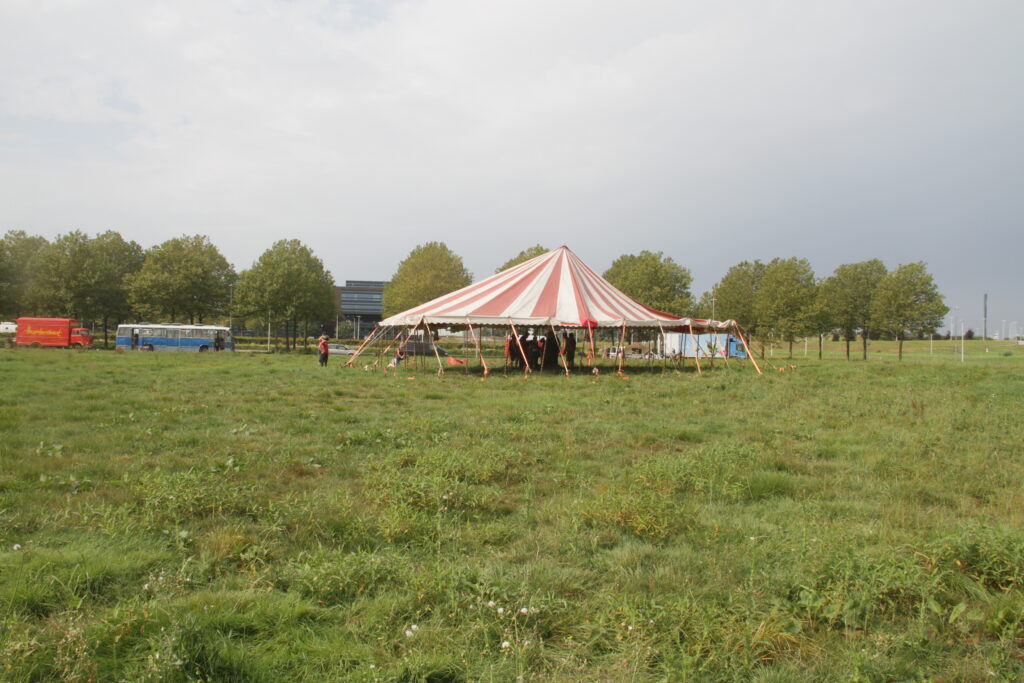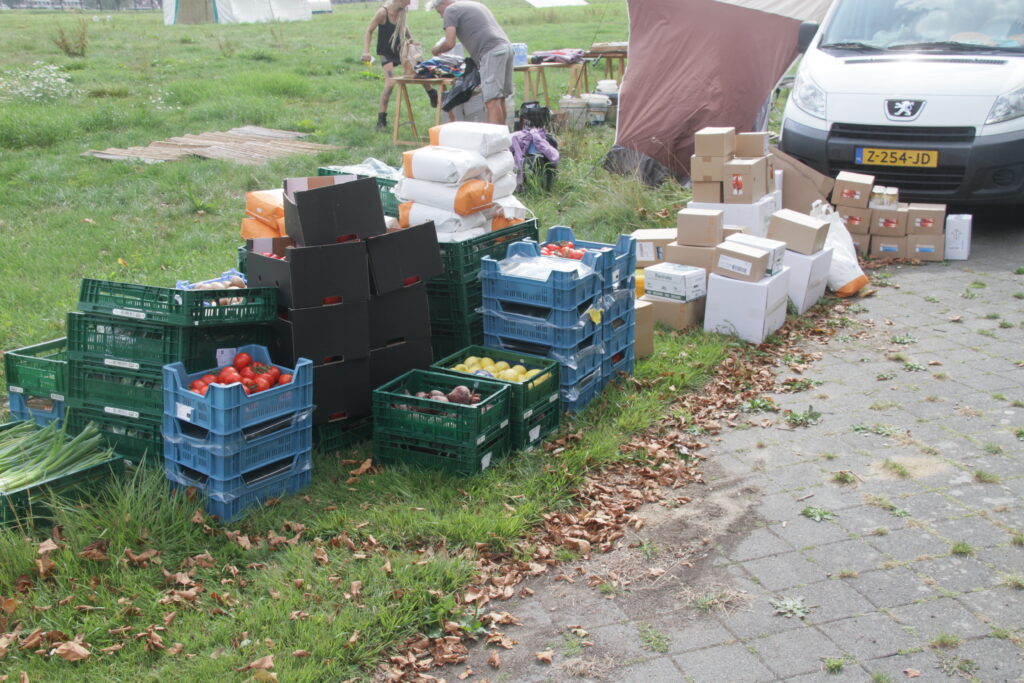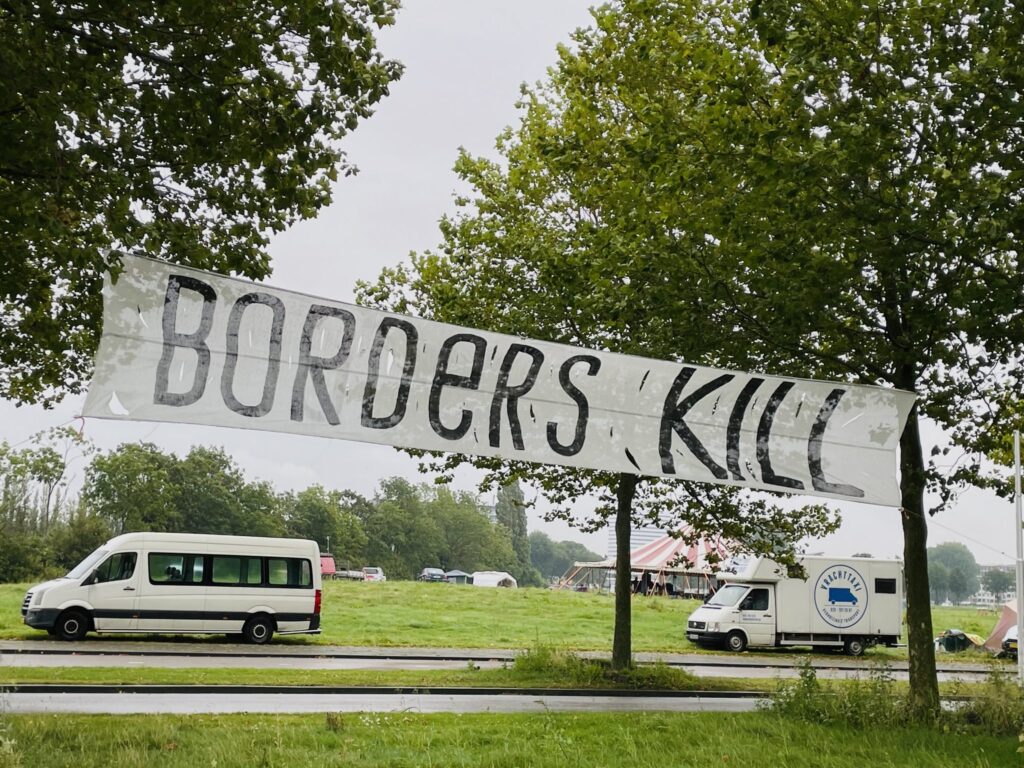Today, a demonstration from the No Border Camp through the city of Utrecht squatted the infamous Galaxy Tower, an unfinished prestigious construction project on the Jaarbeursplein, and transformed it into a pop-up information point about the migration and housing struggle. A demonstration with speakers, music and information took place here during the afternoon. The action is aimed at the divide-and-rule policy of the government, and in particular the new government, which is partly selling its racist, dehumanizing migration plans by designating migrants as scapegoats for its own failing housing policy.

The construction of the Galaxy Tower, a multi-million dollar project that would house a hotel and apartments, has been at a standstill for a long time and is a symbol of the inflated, stalled real estate capitalism. Due to conflicts and financial problems, the project has become a millstone around Utrecht’s neck. In times of great housing shortage, it is unsellable to leave such a building unfinished.
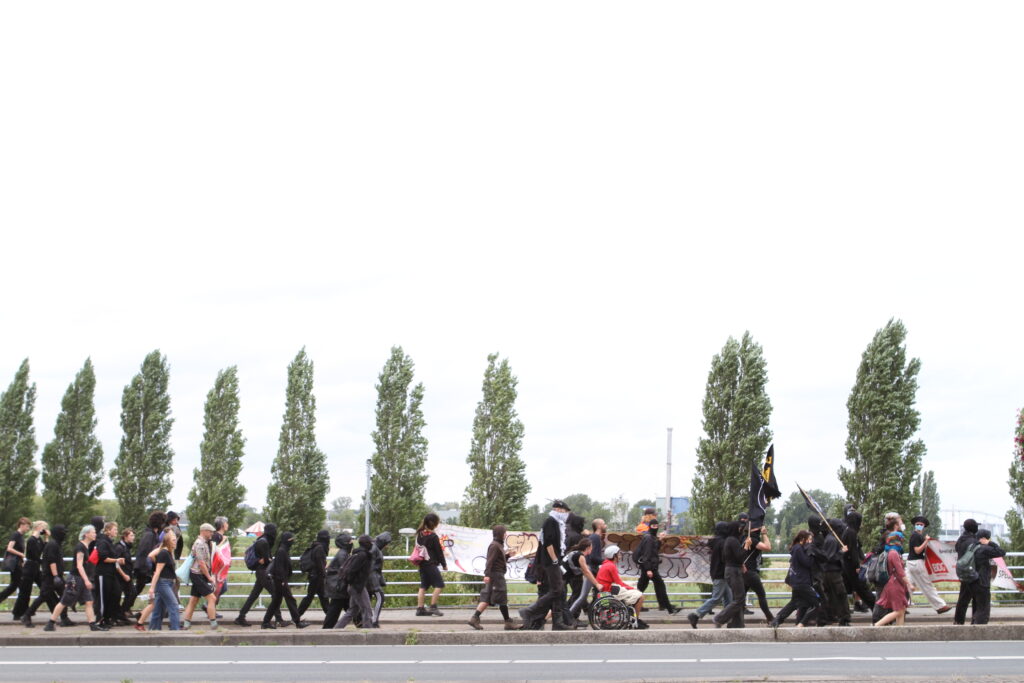
Sasha, spokesperson for the No Border Camp, says: “The government has pursued a policy of demolition in the social housing stock for years. Speculators are driving up house prices. The result: you can only find a home if you are rich. The government is making scapegoats of migrants, but they are just as much victims of the housing shortage as anyone who is not rich.”
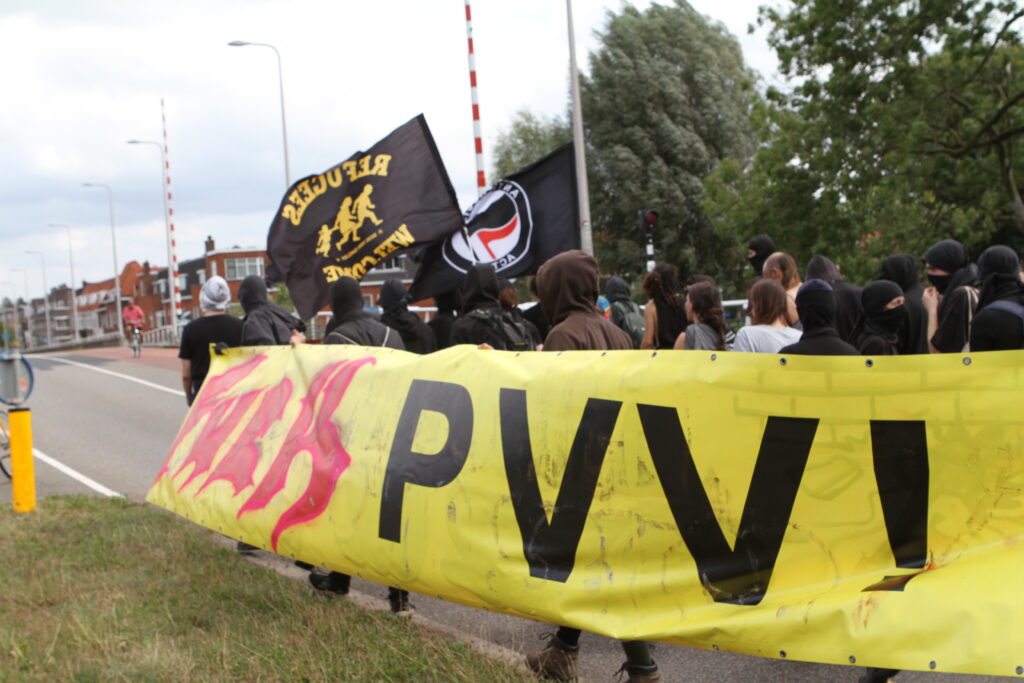
Last week, several hundred people gathered at the No Border Camp to take action, attend workshops and make plans for the fight against borders and for freedom of movement for everyone. A solidarity demonstration was held at Kamp Zeist, a prison for refugee families, among others, and a picket line was held at the company Rohde & Schwarz, which supplies equipment for border surveillance and control.

The speech of Bo Salomons of the Bond Precaire Woonvormen, during the demonstration:
“Friends,
I’m Bo and I’m with the BPW. I was asked to share with you a story about the failing of the current housing situation and what that has to do with migration. As it turns out, the housing crisis has everything to do with migration, just in completely the opposite way the far right tries to frame it.
So, to tell you the story of the Dutch housing market is to tell the story of this street, the Croeselaan. A year ago, brave squatters occupied these buildings to force the municipality to house refugees here. For generations, social housing like this dotted the Dutch landscape. While tenants were still subject to the leeching known as ‘rent’, those rents were relatively low. Over 90% of rental housing was social.
Of course, low rents are a mixed blessing. For people like us, low rents mean you have less to worry about if you lose your job, or if you have medical expenses. Low rents allow you to have relatively more freedom in your life. On the other hand, low rent social housing also means that the Economy Number, the Country High Score, is not as big as it could be.
And that is unacceptable.
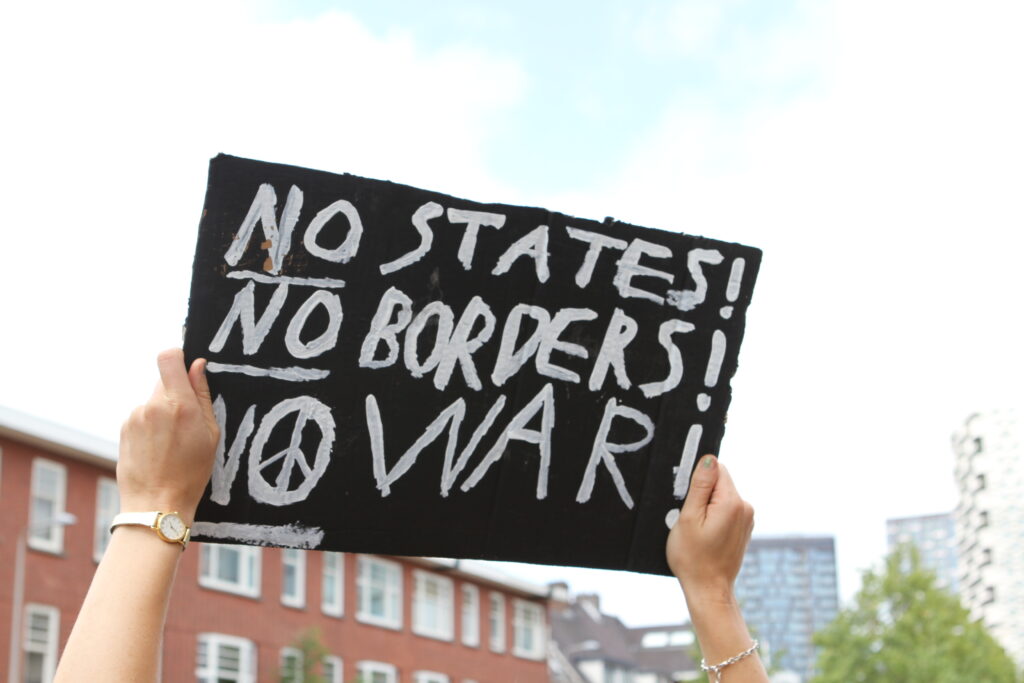
So, the government cut off funding from the social housing associations. “Be more like a company”, they said, and the associations obliged. Marred by incredible corruption, social housing was sold cheaply to private investors. These investors soon discovered that people will pay whatever in order not to be homeless. So they jacked up the price, just as the Dutch government privatised healthcare, the Railways, and for good measure, the Postal Office.
Much to the delight of the bosses who have made themselves rich off of the back of migrant labour. They supply their workers with housing while subtracting huge rents from their pay. With the implicit warning: you have nowhere to go but here. Take another pay cut. Don’t take a vacation. Your workload has been doubled. I have altered the deal, pray I don’t alter it any further. It is the same power dynamic that keeps many tenants, migrant or no, chained to their employer: where else would they go?
It is no wonder that around this time, politics began to blame migration for everything. As a society we were confronted with the enormous cost of privatisation, and what did the newly-empowered feudal landlording class say? Those who had become rich as kings? Of course they blamed migration, and the left more generally. All problems would be fixed, if only they could charge more rent. If only they could evict tenants with no reason. If only they could build more so called luxury housing, whose only luxury is that their wealthy tenants can afford the *expensive* IKEA furniture.
And while more and more luxury apartments rise, the number of homes goes down. Those who cannot pay 1000, 2000 euros per month now have to live in ‘temporary housing’, built to rot away in ten or twenty years so that, one day, the fields they stand on may be gentrified and racially segregated. Refugees have it worse: in the 90s the government cut them off of housing subsidies. So they either pay a premium to get one of the few social houses left, or they get placed in the growing number of concentration camps the government insists on calling ‘facilities’. All the while, enough homes stand empty to house every refugee, unhoused person and prisoner three times. But they are for those who can pay.
Our comrades in camps are showing us our future too. As social housing becomes more scarce, more and more people will be forced to live in leaky shipping containers in half-grassy fields, waiting for the day that those fields too may one day be gentrified and turned into white ethno-neighhbourhoods by racist municipalities.
We can draw but one conclusion. The housing market is incompatible with our fundamental freedom. As long as governments want to use lack of housing as a weapon against migrants, we will have fascist policies. As long as there are people who want to make money off of housing, there will need to be those who are homeless. The housing market is a machine that consumes fear and turns it into profit. This cannot stand.
Our fight is clear. We are with those of all passports and those without. We fight against the fascist; not only the racist FRONTEX guard and their Israeli murder drones, not only the military police happily deporting people because they are ‘just following orders’, but also the fascists in suits and ties who are ready to burn every single migrant, every single refugee, if it increases their bottom line. Our fight is with them, and we will strike that which they love above human life itself: their property. For the sake of our friends, here and abroad, whose lives we stand ready to defend.
No borders, no nations, fuck deportations!
Thank you!”

